On 22nd May at the Agricultural Fair in Novi Sad, the Climate Quest game took place within the program at the EU Pavilion. Envisioned as a treasure hunt game, this challenging activity brought together the pupils of four agricultural schools from Serbia, high school pupils who attended the elective subject "Climate Change in Agriculture" for the first time in the 2023/2024 school year.
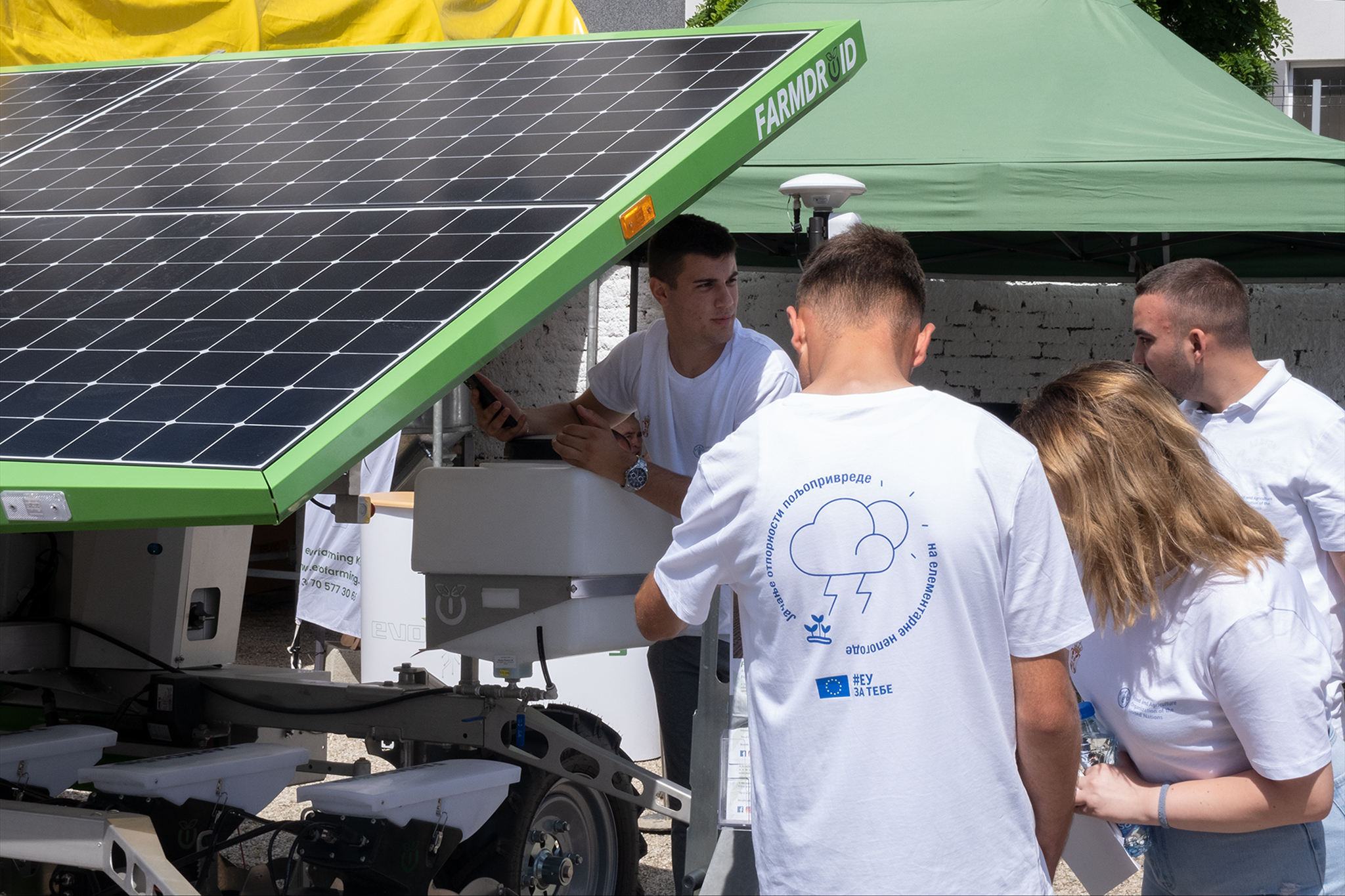
Five mixed teams, composed of pupils from Zrenjanin, Kraljevo, Požega and Sombor, applied their knowledge from the school desk through the Climate Quest, with the support of students from the Faculty of Agriculture in Zemun. During the game, they visited the fair stands, observed examples of adaptation measures, mechanization and climate-smart technology. Climate Quest embraced learning though play and it is a strong message that acquiring new knowledge and skills is important to respond to the risks of climate change. It is also a confirmation of the good direction of the reform of the school system for the agriculture of future.
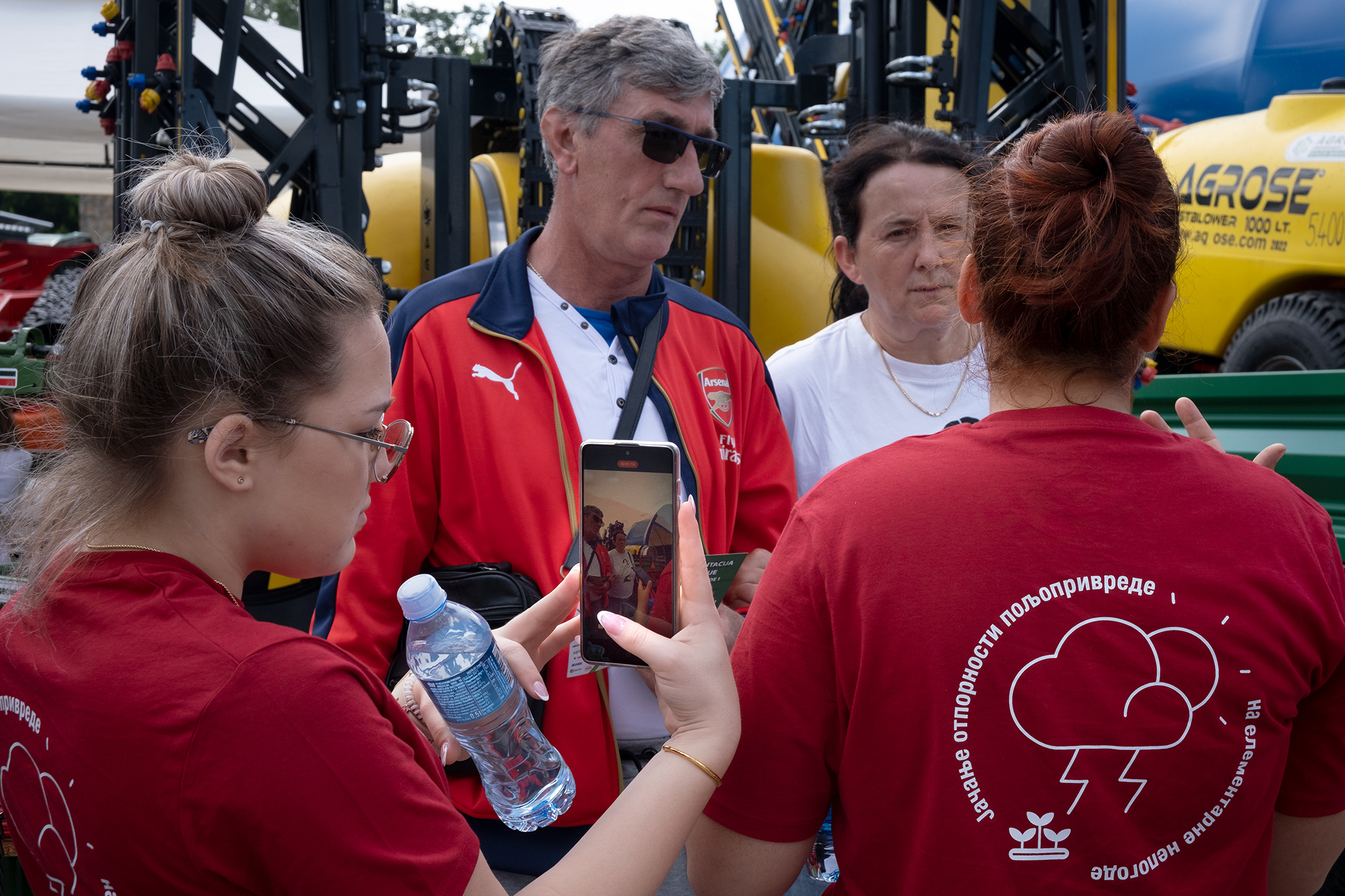
At the end of the game, the participants gathered at the EU Pavilion, where they presented their observations and search results. "The survey we conducted among the fair's visitors showed that not much is known about the impact of climate change, more attention should be paid to this topic in the future, to gain importance through the education of all those involved in agriculture," said Lana Bili, a student from Sombor who participated in the game.
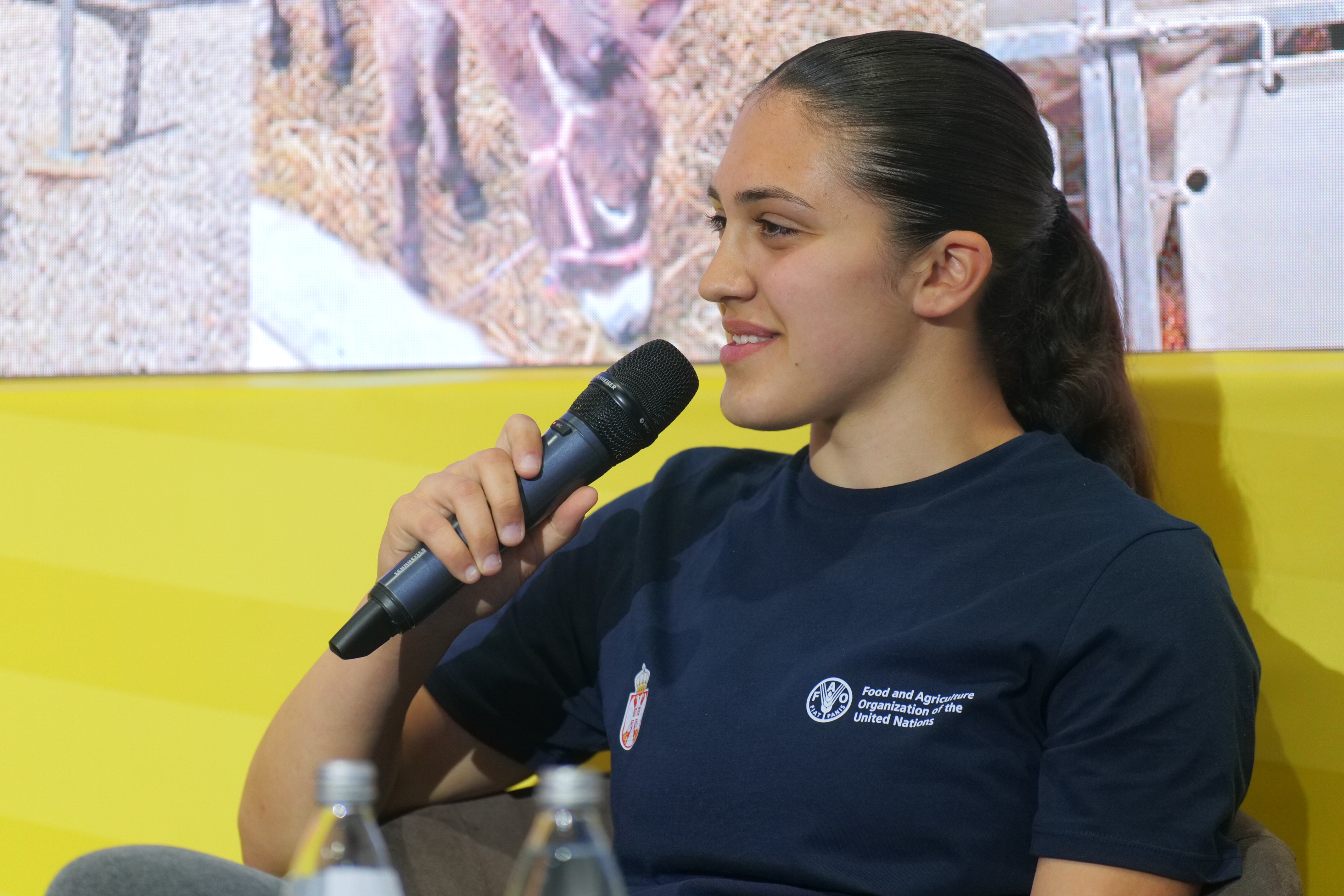
Game participants and fair visitors were addressed by Aleksandar Mentov, National Project Manager at FAO Project Office in Serbia, Svetlana Mladenović, director of the Agricultural and Chemical School in Kraljevo and FAO associate, and Dejan Đurović, professor at the Faculty of Agriculture of the University of Belgrade and collaborator on the project.
Aleksandar Mentov stated that the project collaborates with many institutions and individuals at the local and national level, and that the work with young people is one of the most important aspects.
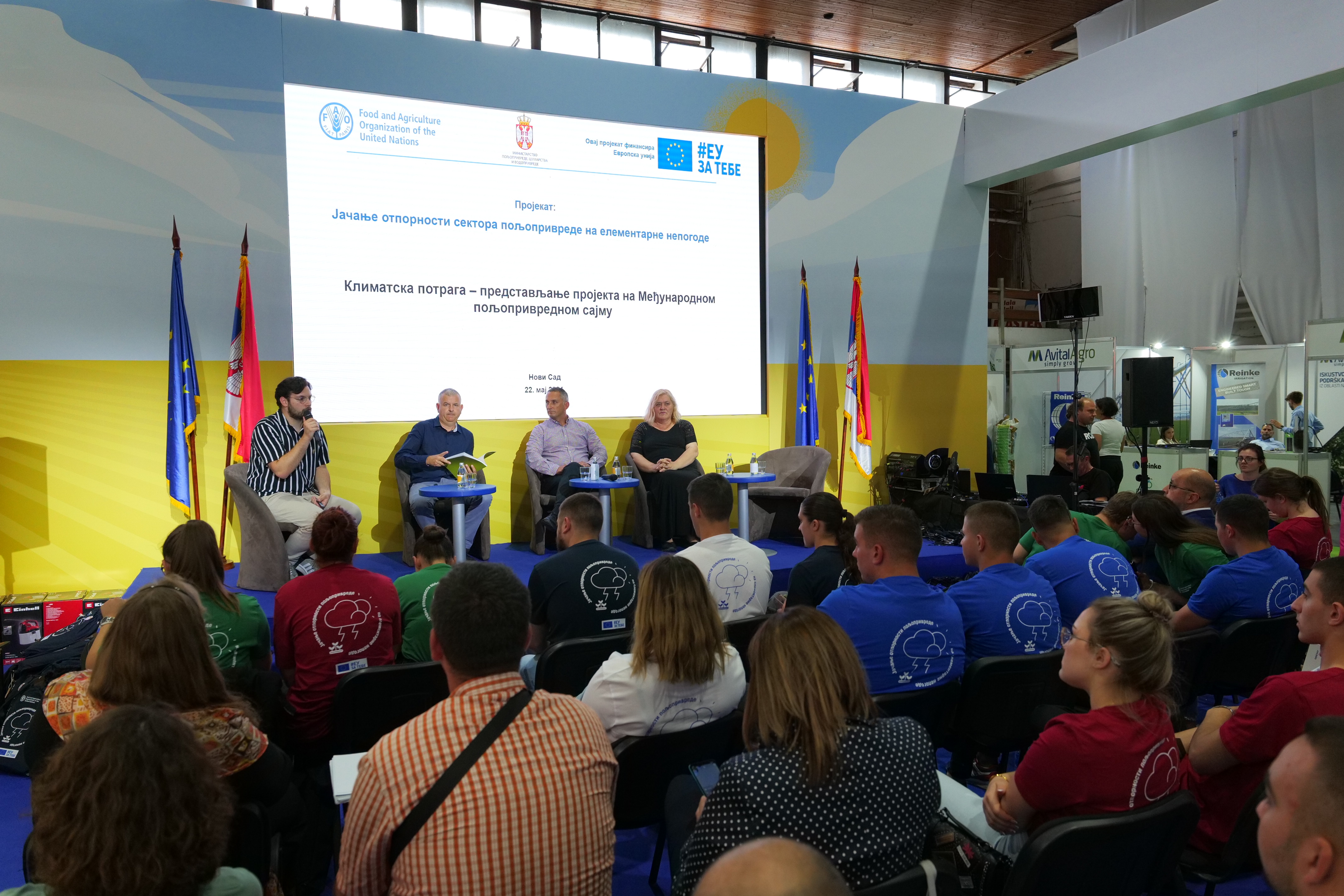
"The topic of climate change has not been sufficiently represented in schools until now, so there was a need for this kind of subject", stated Svetlana Mladenović. "The course consists of four modules: climatology - for students to learn what climate is, then the impact of climate in plant production, the impact of climate in livestock production, as well as a module on adaptive measures. Everything is learned through theory and practice," explained the director of the Agricultural and Chemical School in Kraljevo.
Dejan Đurović presented the manual that has been prepared and will be used by students and teachers from the next school year for the successful implementation of the subject "Climate Change in Agriculture".
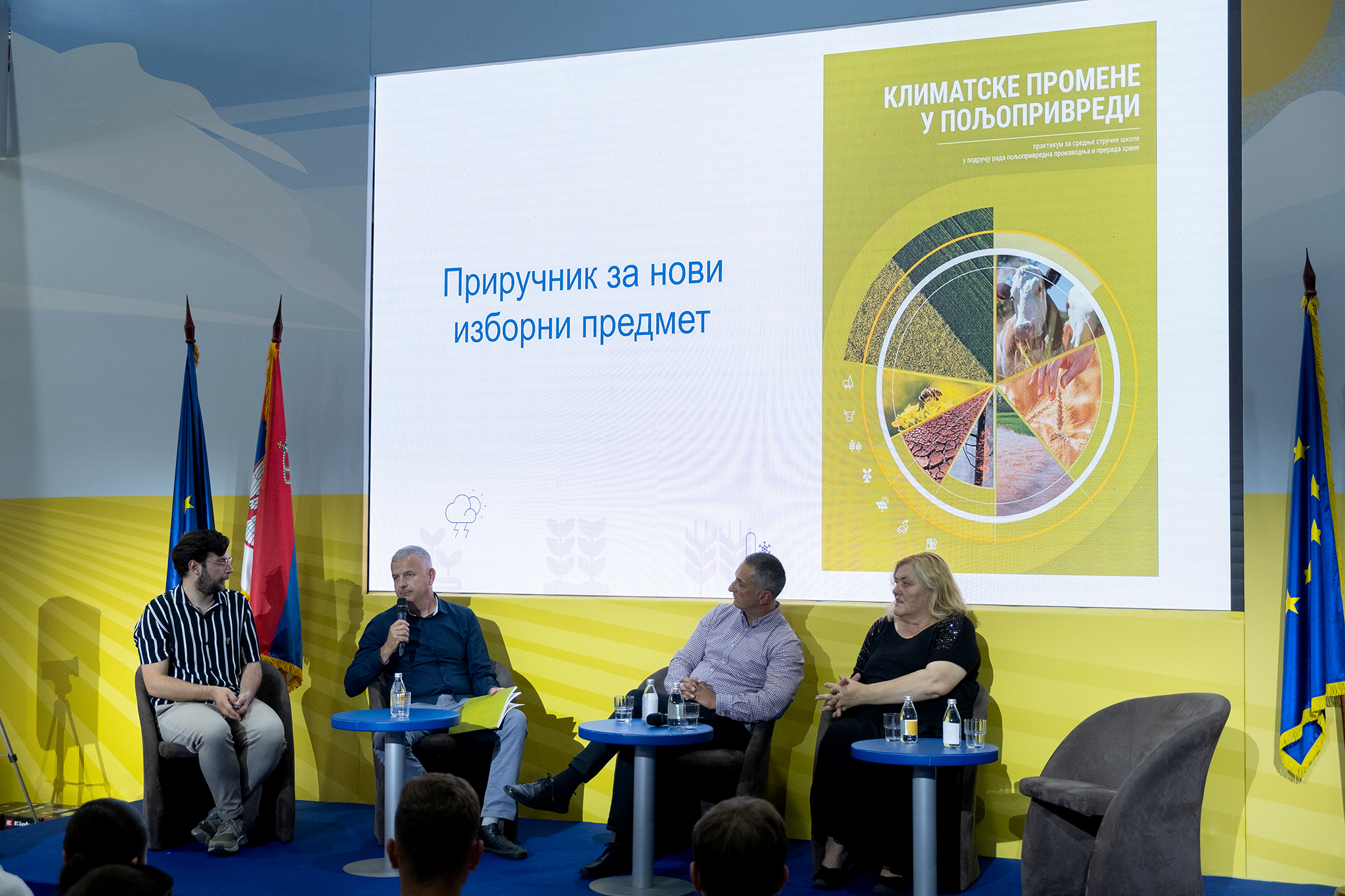
On this occasion, other agricultural high schools were invited to join the schools from Požega, Zrenjanin, Sombor, Požarevac and Kraljevo and include this elective subject in their curriculum.
"Climate Change in Agriculture" and the subject manual are activities of the project “Strengthening Disaster Resilience in Agriculture”, which is funded by the European Union and implemented by the Food and Agriculture Organization of the United Nations (FAO) in cooperation with the Ministry of Education, the Institute for the Advancement of Education and Upbringing and other partners.